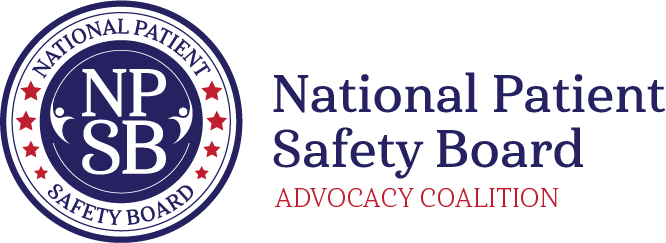House Bill Establishes Federal Agency Dedicated to Patient Safety
National Patient Safety Board Will Address Preventable Medical Harm, the Third Leading Cause of Death in the U.S.
Washington, DC, Dec. 8, 2022—U.S. Representative Nanette Barragán (D-CA) has announced the introduction of H.R.9377 – the National Patient Safety Board Act, legislation to establish an independent federal agency dedicated to preventing and reducing healthcare-related harms. This landmark legislation is a critical step to improve safety for patients and healthcare providers by coordinating existing efforts within a single independent agency solely focused on addressing safety in health care through data-driven solutions.
Prior to the COVID-19 pandemic, medical error was the third leading cause of death in the United States, with conservative estimates of more than 250,000 patients dying annually from preventable medical harm and costs of more than $17 billion to the U.S. healthcare system. Recent data from the Centers for Medicare and Medicaid Services and Centers for Disease Control and Prevention indicate that patient safety worsened during the pandemic.
The National Patient Safety Board Act would establish a National Patient Safety Board (NPSB), a nonpunitive, collaborative, independent agency modeled in part after the National Transportation Safety Board (NTSB) and the Commercial Aviation Safety Team (CAST) to address safety in health care. The aviation industry has had a stellar safety record thanks to the work of the NTSB and CAST, which together have been improving and promoting transportation safety in the United States for more than 25 years. The NPSB would guarantee a data-driven, scalable approach to preventing and reducing patient safety events in healthcare settings.
The NPSB is designed to augment the work of federal agencies and long-standing patient safety organizations without displacing them. To support this role, the NPSB would also have a public–private partnership team, the Healthcare Safety Team, to gain consensus on patient safety measures, autonomous data collection technologies, and solutions.
The NPSB’s solutions would focus on problems like medication errors, wrong-site surgeries, hospital-acquired infections, errors in pathology labs, and issues in transition from acute to long-term care. By leveraging interdisciplinary teams of researchers and new technology, including automated systems with AI algorithms, the NPSB’s solutions would help relieve the burden of data collection at the frontline, while also detecting precursors to harm.
A coalition of leaders in health care, technology, business, academia, and other industries has united to call for the establishment of an NPSB. A list of NPSB Coalition members can be found at npsb.org.
“We have seen many valiant efforts to reduce the problem of preventable medical error, but most of these have relied on the frontline workforce to do the work or take extraordinary precautions,” said Karen Wolk Feinstein, PhD, president and CEO of the Pittsburgh Regional Health Initiative and spokesperson for the NPSB Advocacy Coalition. “The pandemic has now made things worse as weary, frustrated, and stressed nurses, doctors, and technicians leave clinical care, resulting in a cycle where harm becomes more prevalent. Many organizations have united to advance a national home for patient safety to promote substantive solutions, including those that deploy modern technologies to make safety as autonomous as possible.”
“As healthcare providers, our top priority and collective responsibility is to ensure the safety and wellbeing of our patients through highly reliable care that minimizes preventable harm. The establishment of a National Patient Safety Board would enable a collaborative, evidence-based and scalable solution to optimize patient safety across our country’s healthcare system,” said Peter WT Pisters, MD, president of The University of Texas MD Anderson Cancer Center.
“Health care is moving to new venues, and the integration of technology is creating an army of new providers. Now more than ever, we need a national organization that looks broadly across the healthcare space and identifies ways that we can share experiences and insights that will make our systems of care safer for patients,” said Joanne M. Conroy, MD, chief executive officer and president of Dartmouth Health.
“As a mother who lost a child to medical errors, I wanted to make sure there was learning from the event so it wouldn’t happen again to anyone else. However, those events stay in each individual setting and are not disseminated to a larger audience,” said Carole Hemmelgarn, MS, MS, founding member of Patients for Patient Safety US. “We need a central agency like the National Patient Safety Board to gather data on these events, analyze them, share them, and develop solutions to mitigate them in the future.”
The text of this bill can be found here.
###
About the National Patient Safety Board
A coalition of leading healthcare organizations and experts are advancing the call to expeditiously form a new independent federal agency, the National Patient Safety Board (NPSB), to model aspects of the National Transportation Safety Board and the Commercial Aviation Safety Team within health care. The NPSB would improve and promote public health and welfare by monitoring and anticipating adverse events, creating recommendations and solutions to prevent medical error, and bringing lessons into practice. The public is invited to “Get on Board” with the NPSB today by staying informed and vigilant, visiting npsb.org.
Contact:
Scotland Huber
PRHI Chief Communications Officer
412-594-2553
huber@prhi.org
